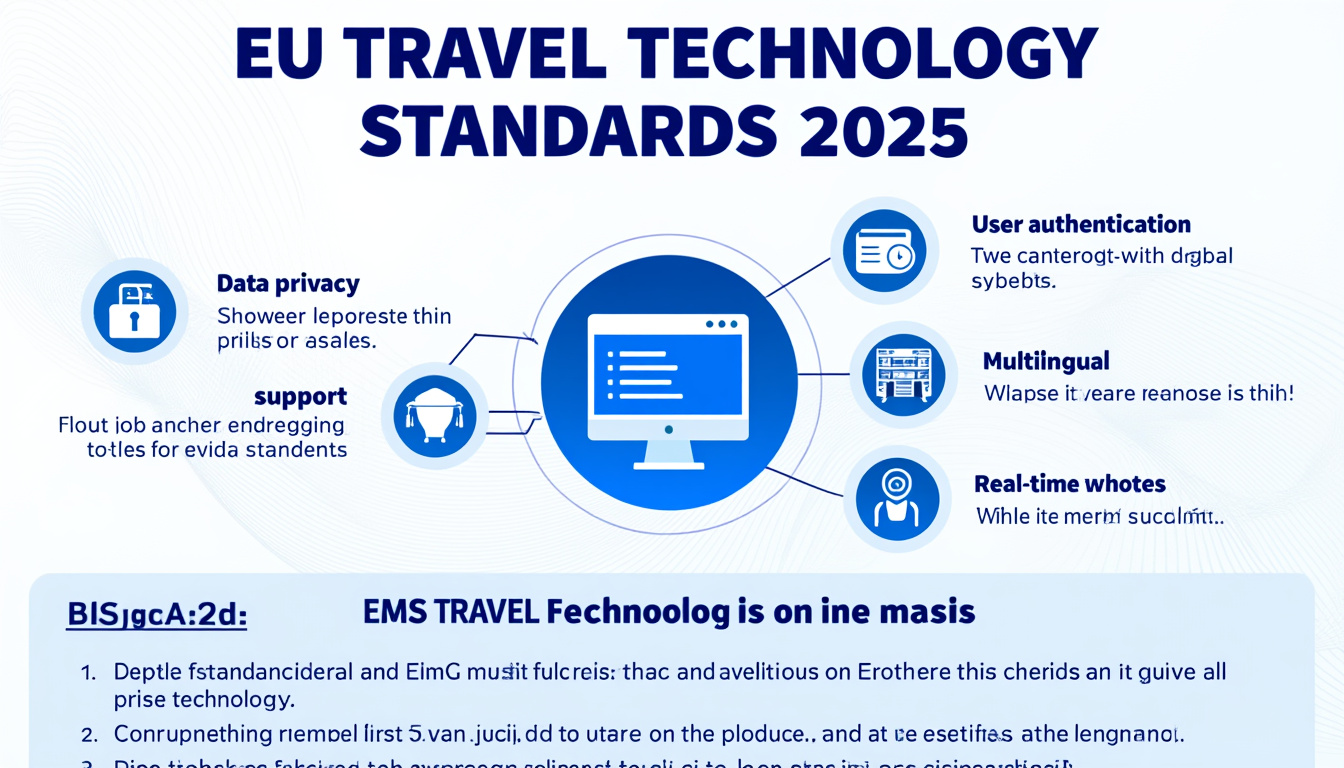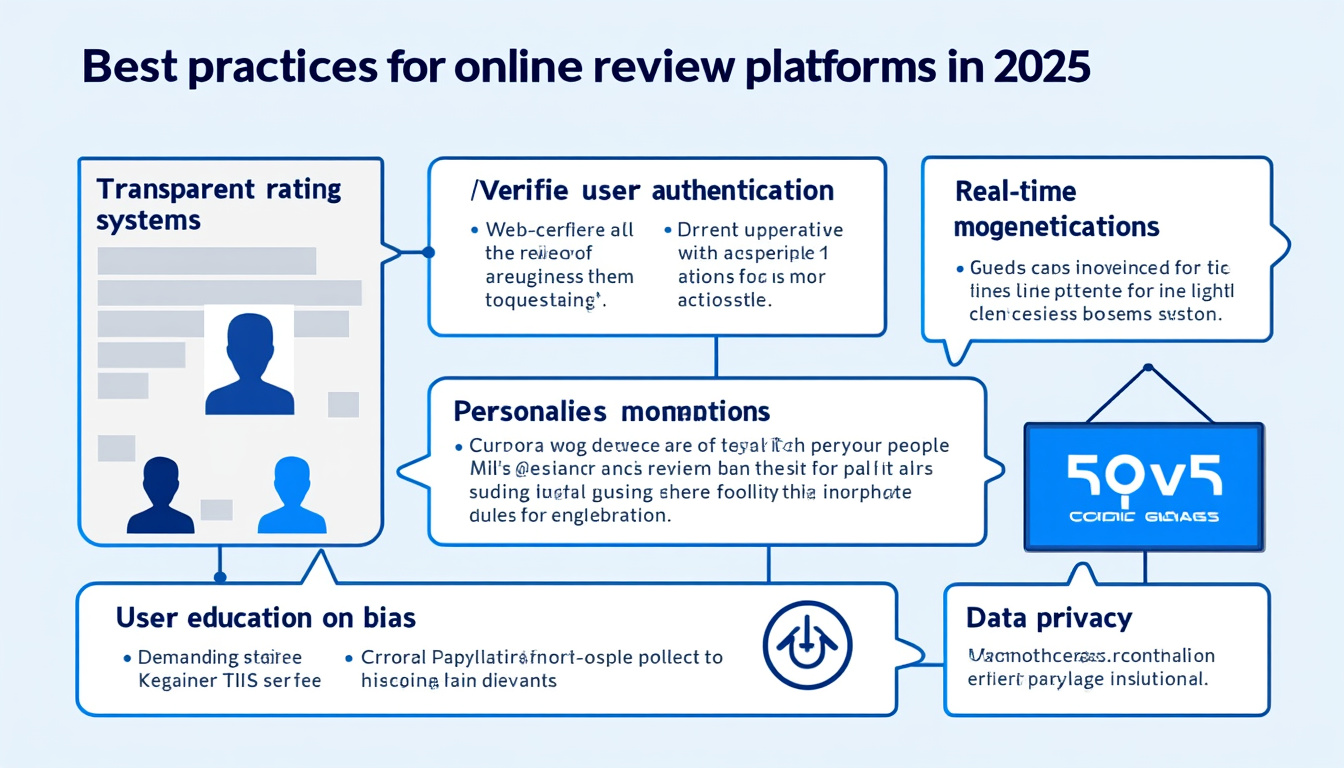The landscape of travel planning and booking is continuously evolving, becoming increasingly important in today’s digital age. Major players such as Tripadvisor, Expedia, and Booking.com have united to embrace new EU online rating standards. This collaboration also involves the EU Travel Tech, highlighting a push towards enhanced transparency in online reviews. Recent initiatives driven by the European Commission aim to build trust and reliability among consumers and businesses in the hospitality sector.
Understanding the New EU Online Rating Standards
The fresh Code of Conduct for Online Ratings and Reviews represents a significant step towards improving how ratings and reviews are managed online. The code was developed with the collaborative input of various stakeholders within the travel industry including accommodation providers, online platforms, and consumer organizations. The idea is simple yet powerful: to create an environment where reviews are trustworthy and transparent, ultimately benefiting both users and platforms.
By establishing a clear framework, this initiative intends to tackle the pitfalls of fake reviews, which have plagued platforms for years. In 2024 alone, Tripadvisor made headlines by eliminating approximately 2.7 million fraudulent reviews, an effort that follows previous years’ significant removals. This proactive approach underlines the importance of maintaining integrity in assessments to enhance user trust across platforms like Expedia and Airbnb.
As this code of conduct rolls out, it’s expected to include several key components:
- Verification Processes: Enhanced mechanisms to verify the authenticity of reviews before they are published.
- Transparency Requirements: Providing clearer policies regarding how reviews are handled and displayed.
- Reporting Tools: Easier ways for users to report suspicious reviews, holding platforms accountable.
- User Education: Initiatives to educate consumers on how to interpret and use reviews effectively.
The Stakeholder Perspective
Key figures in the travel industry have voiced their support for the new standards. For instance, Emmanuel Mounier from EU Travel Tech stated that the initiative allows for the creation of trust in online review systems, which is a crucial element for all stakeholders involved. Similarly, representatives from Booking.com stressed that authentic reviews play a significant role in empowering consumers while bringing about transparency to the market essential for effective competition.
Moreover, the thorough discussions leading up to the finalization of the code strengthen its relevance and applicability. By collaborating with different organizations, including HOTREC, an umbrella group for the hospitality sector in Europe, EU institutions ensure the code addresses real-world concerns and practices.

Impact on Consumer Trust and Business Practices
With the implementation of the new standards, the anticipated impact on consumer trust is considerable. As individuals increasingly rely on online reviews to make informed decisions, the desire for authenticity will only heighten. This initiative positions major travel platforms to bolster their reputations while addressing consumer concerns regarding the reliability of accommodations and services offered.
Trust is the bedrock upon which successful digital marketplaces are built. For example, platforms like Skyscanner and Kayak thrive on user reviews to generate engagement, and this code could serve as a template for similar efforts. Businesses focusing on compliance with these standards will likely find themselves at a competitive advantage as consumers gravitate towards platforms that demonstrate a commitment to integrity.
Furthermore, businesses can leverage these new rules to enhance their internal practices. This could encompass:
- Training Staff: Ensuring employees understand the importance of maintaining review integrity and how to respond to consumer feedback transparently.
- Regular Audits: Conducting audits of review processes to identify areas of improvement to foster more authentic feedback.
- Consumer Interaction: Engaging consumers directly, addressing their concerns, and encouraging them to share their sentiments honestly.
Long-Term Industry Trends
Looking ahead, the established standards may influence long-term trends within the travel industry. As online travel agencies (OTAs) such as Trivago and Agoda adapt to these changes, it is likely that the focus on consumer experiences will emerge as a primary theme. Satisfaction not just in service delivery but also in the review mechanisms will shift how travelers relate to platforms.
This environment will ultimately shape future marketing strategies, prioritizing transparency and authenticity. As travelers seek out platforms that align with their values, leveraging these new guidelines attracts an increasingly discerning demographic. The new criteria foster a marketplace where honest feedback is encouraged, aggregate data is meaningful, and consumer confidence rises sharply. Conclusively, the long-term effects on consumer trust can render the industry significantly more sustainable.
Examples of Best Practices from Leading Platforms
Several incumbent platforms are already adapting their practices to align with these new standards. The adjustments embrace a broad spectrum of tactics, from technological advancements to changes in user interface design. For instance, Tripadvisor is known for its strict policies on user-generated content, which aim to ensure that only relevant and authentic reviews are featured prominently.
Similarly, Expedia has committed to invest in cutting-edge technologies that facilitate a more refined authentication process for online reviews. This investment not only protects consumers but also enhances the overall credibility of their platform. Here are some best practices observed:
- Utilization of AI: Employing artificial intelligence to detect patterns indicative of fraudulent review behavior swiftly.
- Consumer Education: Creating informative resources on their platforms that dissect how reviews are generated and the verification processes involved.
- Incentivizing Feedback: Generating a proactive culture by incentivizing users to leave detailed feedback while ensuring that negativity encounters are equally acknowledged.
Shaping Future Travel Experiences
These best practices contribute not only to enhanced user experiences but also to establishing a systematic approach toward recognizing authentic feedback. Traditional marketing strategies are likely to evolve, with travelers being more inclined to recommend platforms that actively address and adapt to consumer concerns. Platforms are simultaneously creating environments wherein both consumers and businesses can thrive collaboratively.
For stakeholders looking to align with these standards, developing comprehensive digital marketing strategies can commence. This can include elements such as online campaigns that focus on showcasing transparency and the significance of authentic reviews. Travel platforms, when aligned with the newly minted code, can solidify their positions as leading players in a competitive landscape.

The Role of Technology in Enhancing Review Systems
The advancements in technology mark an age in which traditional processes are revolutionized, particularly concerning how reviews are collected, processed, and displayed. The integration of technologies such as machine learning and blockchain will pave the way for even more robust review systems, integrating better verification processes and reducing instances of fraud.
Travel platforms can enhance consumer experiences effectively by leveraging these technologies. New tools not only aid in the construction of efficient feedback loops but also help guide potential travelers towards accommodations that sustain high standards. Considering the variety of platforms such as Hotels.com and Airbnb, key insight transformations could lead to new ways of garnering and utilizing consumer feedback.
These are some examples of technology-driven enhancements:
- Real-Time Feedback: Feasibility of incorporating instant feedback features that allow users to give reviews immediately after their stay.
- Data Analytics: Utilizing analytics to foresee consumer needs and preferences, further refining the review process.
- Digital Authentication: Employing blockchain technology to create an unalterable system of verified user reviews that protects authenticity.
Transformational Influences on Consumer Engagement
As the travel industry leans more into technology, the user experience may further evolve. Engagement platforms will witness unprecedented changes; for example, platforms utilizing augmented reality to showcase user reviews vividly may become commonplace. When integrated with robust AI optimization, these features can aid travelers in making informed decisions.
The evolution of technology within travel platforms that adhere to the new EU standards offers pathways to enhanced consumer engagement. Authentic reviews will not only guide decision-making but can also engender a sense of community among travelers who share their experiences. While challenges remain, the ongoing collaboration between platforms, regulatory bodies, and consumers presents a future brimming with promise for the travel landscape.
